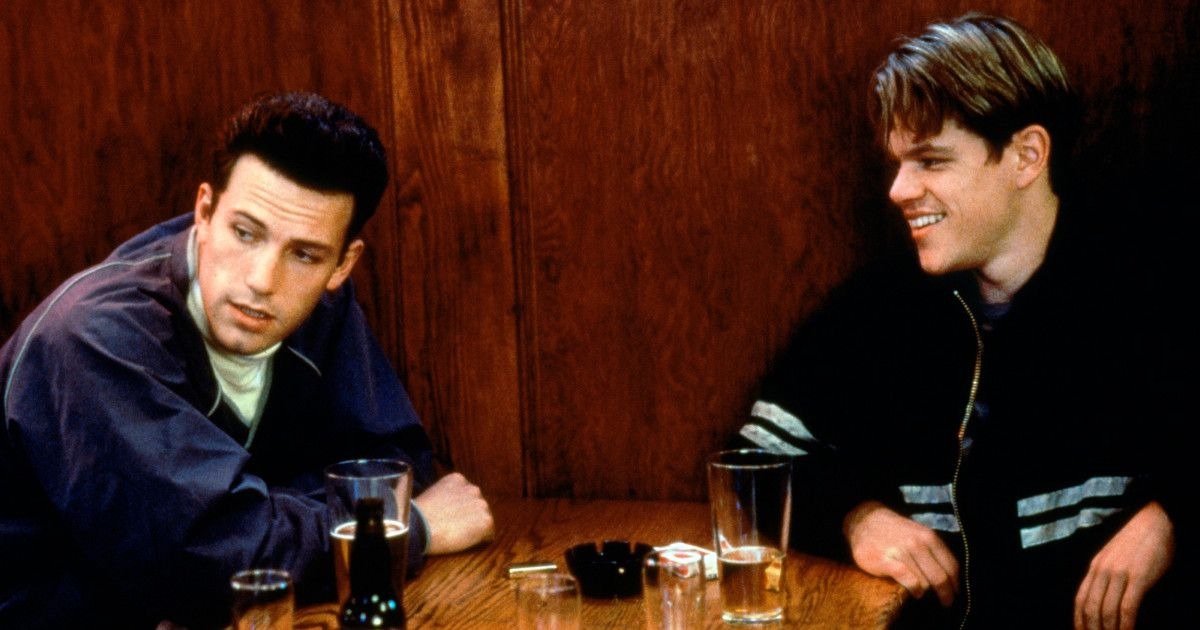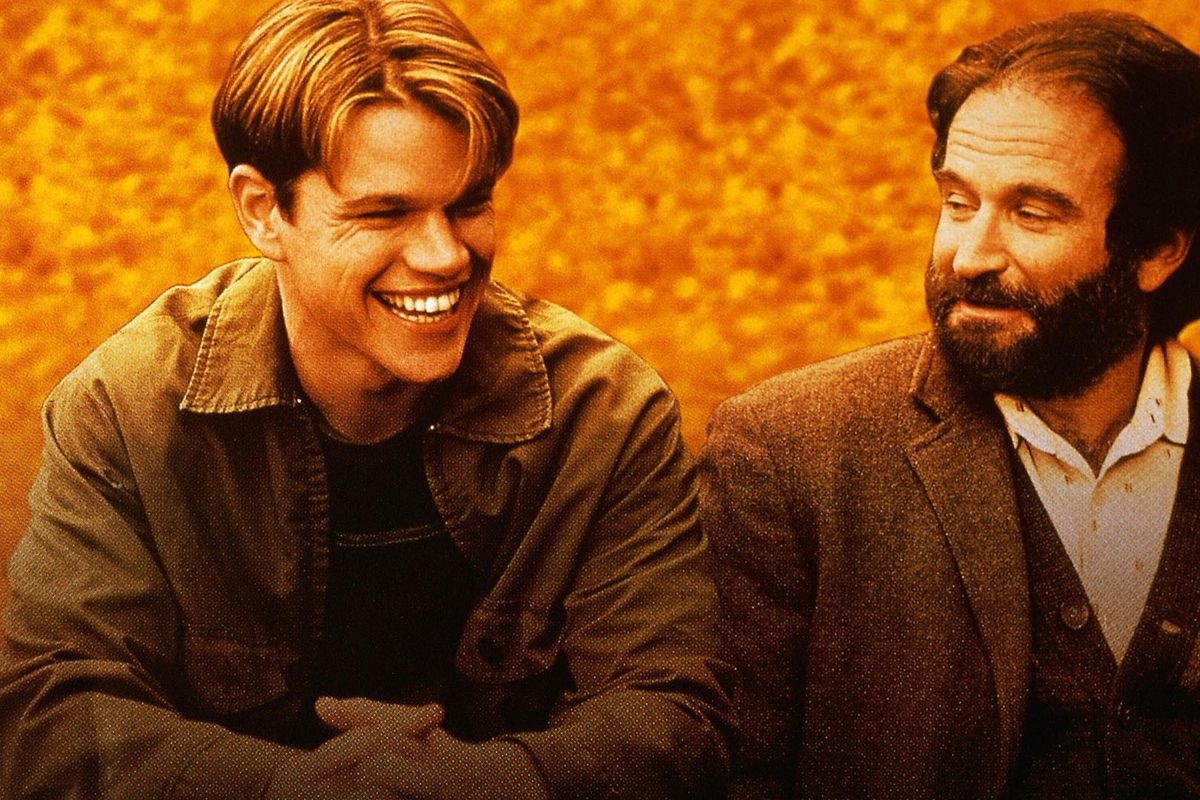By the time Good Will Hunting premiered in 1997, Matt Damon and Ben Affleck had already spent a few years in the industry. However, it could still be argued that they were primarily struggling actors, often relegated to supporting roles. Their victory at the Oscars for the film’s screenplay firmly established them as influential figures in Hollywood for many years.
The story focuses on Will Hunting, portrayed by Damon, a troubled youth from the working-class neighborhoods of South Boston. He embodies the dichotomy of a street-smart tough guy who indulges in drinking while also possessing extraordinary intellect and mathematical talent. His genius in mathematics seemingly rivals that of Einstein, yet Will’s life is marred by past trauma.

What shaped Will’s childhood, and when does he receive his “call to action”? Growing up as a foster child, he endured a series of abusive placements, leading him to trust only a tight-knit group of South Boston friends, including his real-life best friend, Ben Affleck. Outside of his bar-hopping nights, Will immerses himself in literature and scribbles mathematical proofs on his bathroom mirror.
During the day, Will works as a janitor at MIT, where he serendipitously discovers challenging proofs left on the chalkboard in the hallway. For him, what proves to be a formidable puzzle for most students is merely another day at the office. When a professor witnesses Will’s exceptional skills, it becomes evident that he can no longer conceal his true potential.
Who does Robin Williams portray in Good Will Hunting? Williams delivers one of his most remarkable performances in this film, earning the Academy Award for Best Supporting Actor.
He plays Sean Maguire, a community college professor who takes on the role of Will’s therapist. Their shared background in South Boston and similar stubbornness creates an immediate tension during their first encounter, as Will’s arrogance has driven away previous therapists.
What transpires when Sean reveals his past to Will? As the story comes to play, Will confides in Sean about his romantic interest, Skylar (Minnie Driver), prompting Sean to share the story of how he met his late wife. This anecdote dates back to October 21, 1975, during Game 6 of the World Series—an event etched in the history of the Red Sox.
Sean recounts his experience at a bar with friends as they anticipated the game, only to have the story move to Carlton Fisk’s iconic home run that forced a Game 7.
Their mutual appreciation for the game allows Will to express his disbelief at Sean’s attendance, only for Sean to reveal that he had chosen to give up his ticket to talk to his future wife, saying, “Sorry guys, I gotta see about a girl.”
Support from Friends
How does Chuckie provide support to Will? By the film’s third act, Will begins to alienate those who have offered him help, including Sean, Professor Lambeau (Stellan Skarsgard), and his girlfriend.
Skylar’s departure for graduate school in California presents an opportunity for Will to join her, yet he resists, convinced that his life of construction work and drinking is all he deserves. The thought of change terrifies him.
In an unexpected moment of clarity, Chuckie (Affleck) confronts Will, reminding him that time will pass, and he will remain stuck in his current life unless he chooses to change. Each morning, Chuckie hopes for the day when he arrives to find Will has embraced a new path.
What does Sean’s message “It’s not your fault” mean for Will? Following this pivotal conversation, Will returns to therapy, where he finds Sean in conflict with Lambeau, who pressures Will to capitalize on his mathematical abilities. Sean, empathetic to Will’s struggles, defends him, emphasizing the importance of trust and loyalty—central themes in the film.
After Lambeau leaves, Sean examines Will’s file, which contains disturbing images of past abuse. Will questions Sean about his own experiences, to which Sean candidly replies that his father was an abusive alcoholic. This revelation fosters a deeper connection between the two.
“I don’t know a lot, but all this shit? This is not your fault,” Sean tells Will, moving closer and referring to him as “son.” With this acknowledgment, Will’s emotional barriers begin to break down, as Sean helps him confront the grief and mechanisms he has employed to shield himself from pain, culminating in a moment of embrace.
A Journey of Self-Discovery
How does Good Will Hunting reach its conclusion? As Will reconciles with those he has pushed away, he resolves to leave Boston for a road trip to California to join Skylar.
One morning, Chuckie visits, only to find Will missing, which brings him a sense of joy, as viewers understand the importance of this moment. In the film’s closing scenes, Sean receives a note from Will stating he must forgo all job offers in favor of pursuing a relationship.
Good Will Hunting stands as a film that defined its decade, establishing itself as a quintessential Boston story that integrates its setting as a vital character. It serves as a profound exploration of grief, depression, and the critical role of therapy, emphasizing the necessity of finding the right therapist.
The story addresses the challenge of harnessing one’s talents despite life’s trials. Will Hunting remains a character worth rooting for despite his imperfections, and the film continues to resonate more than 25 years later.



